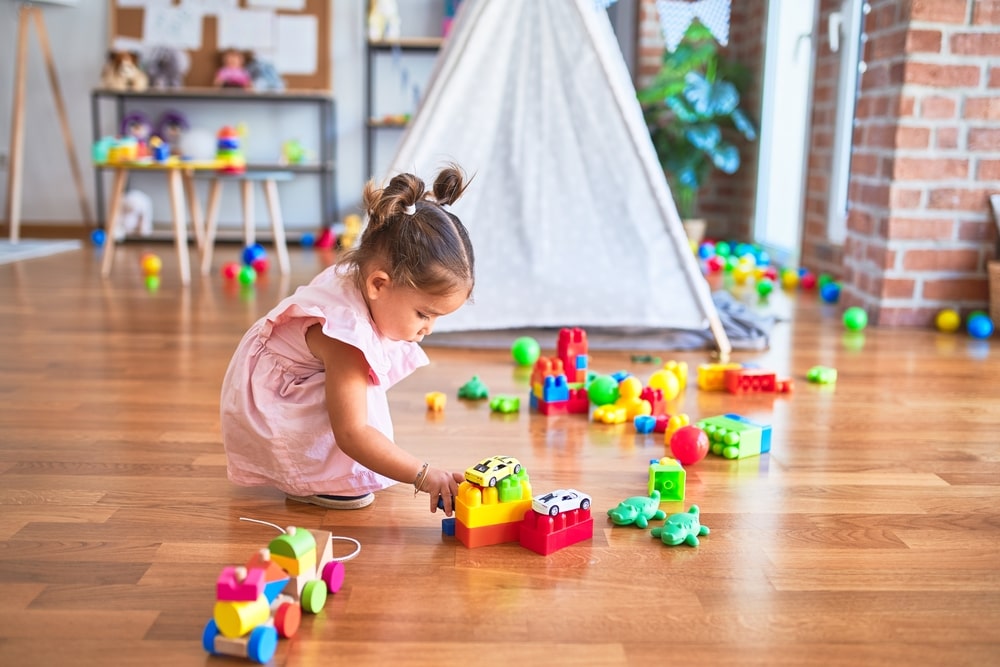Sometimes, as parents, we snap. Maybe your kid was being rude or disrespectful. Perhaps it was the day that your little one decided to push every button that you have.
Whatever the reason, you spanked or hit them and now you feel like the worst parent in the world. You probably feel worse than your child does, but I want you to know that it’s okay. We’re going to get you through this.
Accept That It Happened
It can be hard to accept that it happened. In order to move past the incident, you need to, though. Start off by acknowledging it to yourself.
Don’t shove it to the back of your mind and pretend like it didn’t happen. Then, acknowledge it with your child. Apologize if you know that you were out of line.
This can set the stage for both of you to acknowledge that it happened and to move forward.
Apologize To Your Little One If You Feel That You’re In The Wrong
Most parents feel that they don’t have to apologize to children, but there’s nothing wrong with telling your little one that you are sorry.
Have a talk with them and inform them that your actions weren’t what they should have been. This can not only help both of you move forward, but it can also set a positive example for your child.
Try Not To Feel Guilty
Guilt is a normal emotion, but there’s no reason to feel guilty about spanking your child. If anything, you can use that experience in the long run. There are a few things to remember about feeling guilty.
Feeling Guilty Doesn’t Help Anyone
Feeling guilty might lead to you making one decision or another, but it’s not going to help you move forward. It also won’t help you be a more effective parent.
In fact, being consumed by your guilt can lead you to make decisions based on your emotions instead of logic, which isn’t always a good thing. If you can, try to let the guilt go.
View in gallery
This Is A Learning Opportunity
The first time most parents spank their child, they feel bad. However, it’s important to use this as a learning opportunity. First, it offers you the chance to be a good role model for your little one.
You can show them that it’s okay to be wrong, and it’s okay to make mistakes. Children strive very hard to be their parent’s image of perfection, so it can be a relief knowing that no one is perfect.
You can also model how to apologize, and that it’s possible to change behavior. Next, you can learn about how you want to parent. Take this as an opportunity to decide which discipline strategies you’d like to use, or at least try.
If you feel extremely guilty, maybe spanking isn’t right for your family. You can learn more about positive discipline techniques that will benefit your child in the long run.
Spanking A Child Once Won’t Cause Long Term Damage
There are a plethora of studies that have revealed that using corporal punishment on a long-term basis can cause a significant amount of damage to a child.
It can result in low self-esteem, physical aggression, depression, anxiety, and a multitude of other problems. However, spanking your child once is not going to cause any of these things. So, there’s no reason to feel bad. You didn’t mess your child up for life.
Other Discipline Techniques
[amalinkspro type=”showcase” asin=”034554806X” apilink=”https://www.amazon.com/dp/034554806X?tag=mominformedcom-20&linkCode=osi&th=1&psc=1″ new-window=”true” addtocart=”false” nofollow=”true” sc-id=”4″ imgs=”LargeImage” link-imgs=”false” specs=”No Drama Discipline The Whole Brain Way to Calm the Chaos and Nurture Your Child s Developing Mind” btn-color=”#ff9900″ btn-text=”Buy on Amazon” alignment=”aligncenter” hide-prime=”0″ hide-image=”0″ hide-price=”0″ hide-button=”0″ width=”750″]No-Drama Discipline: The Whole-Brain Way to Calm the Chaos and Nurture Your Child’s Developing Mind[/amalinkspro]
Whether you choose to spank, not to spank, or only spank occasionally is up to you. You have to choose what’s best for you and your family.
However, if you’d like to try some other techniques to switch to spanking only on occasion or get rid of it altogether, here are some great ideas that work well with little ones.
Time Outs
Sitting little ones in time out is surprisingly effective. Remember that the longest a child should sit in time out is one minute per age.
For example, a five-year-old should not sit in time out longer than five minutes. Being consistent with time outs is extremely important, though. It usually takes more than one time out for a child to learn how to sit in time out, and for them to be effective.
Offering Rewards
If you have a consistent problem with a child, consider offering them positive rewards. For example, if your little one usually throws temper tantrums, consider creating a prize box full of small treats, toys, and stickers.
If they don’t throw a temper tantrum for half a day, they get a prize. Do the same thing with the second half of the day.
Be Clear About Expectations
Some children quite literally forget how to act. They walk in a store, see a toy, know that sometimes they get one, and before you know it they are on the floor screaming bloody murder.
This is because they had no idea whether they were getting a toy or not. However, parents can prevent this by being clear about their expectations.
Before going into the store, simply tell them that you are not buying them a toy. Then, wait patiently on them to be done with their fit or attitude before going into the store.
You can also be clear about expectations at home. Some parents make a list of household rules. You can also make a list of things your child is supposed to do every day, such as brushing their teeth and picking up their toys.
Make sure that your children know what behavior is acceptable and what behavior is not.
View in gallery
Taking Toys
Taking away toys is extremely effective. For example, if your child throws toys, take them, and put them up. Don’t throw them in the trash.
Instead, your child can earn them back with good behavior. This helps encourage positive behavior and works as a reward system at the same time.
Selective Ignoring
Selective ignoring isn’t so much a punishment, but it does help with behavior modification. To make this work, simply ignore bad behavior.
Play on your phone. Watch television. Lock yourself in the bathroom for a little bit if you have to. Whatever you do, don’t punish them. Just keep ignoring the behavior. This does work to help stop temper tantrums.
In Conclusion
Slapping or spanking your child is a personal choice. If you aren’t a fan, try other discipline techniques. If you are, that’s your choice.
Either way, feeling guilty doesn’t help anyone, so try to let the guilt go. We’re all doing the best we can for our children.






